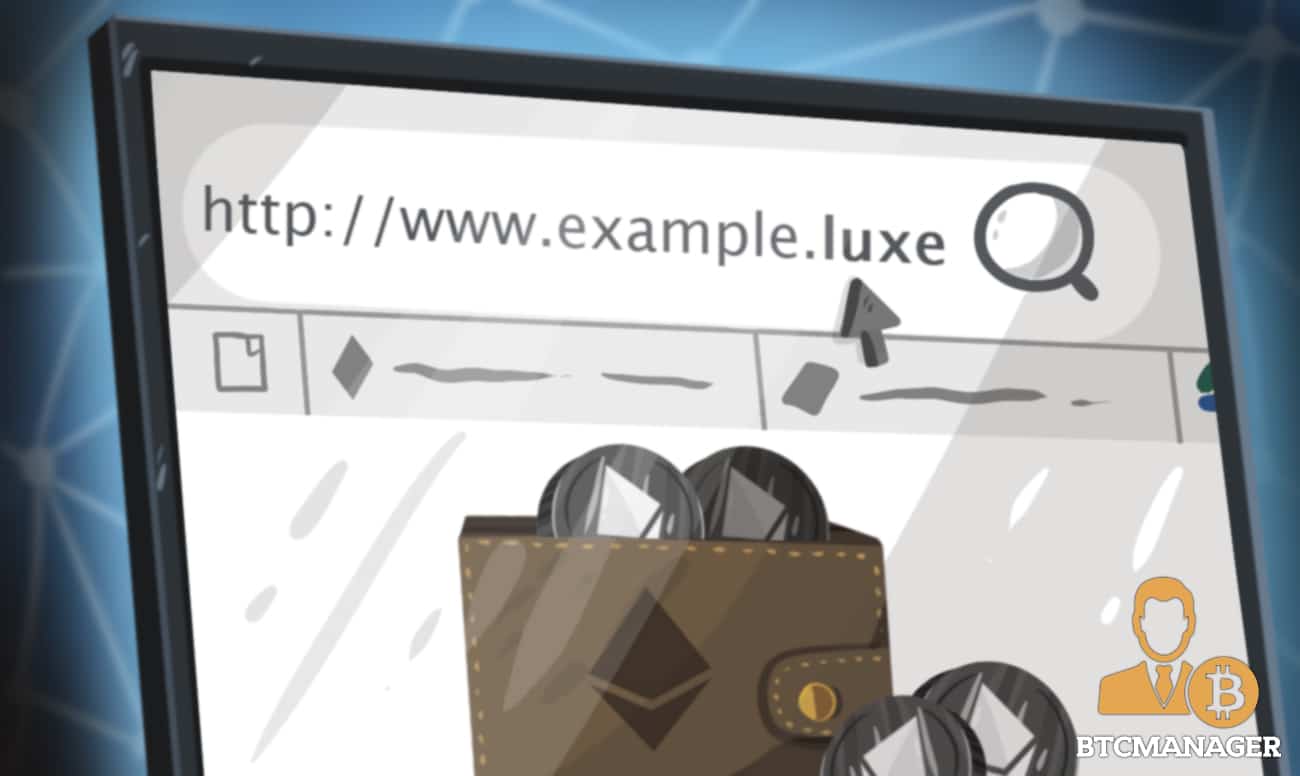Ethereum Reaches Agreement with MMX for Creation of .Luxe Human Readable Wallet Addresses

In a bid to make it easier for ether holders to send and receive funds without having to bother with pasting the 40 character hash addresses at all times, MMX and Ethereum have reached an agreement to create human-readable .luxe addresses, as announced on August 4, 2018.
MMX, Ethereum, and .Luxe
According to the announcement, Ethereum Name Service (ENS) has inked a deal with Minds + Machines Group (MMX) to introduce more user-friendly .luxe addresses for ether holders. The “.luxe” stands for “Lets U eXchange Easier,” and its primary objective is to simplify ether addresses by making them look readable.
Minds + Machines Group Limited is a leading owner and operator of Internet Top-Level Domains (“gTLDs”). The MMX ICANN-approved .luxe addresses will reportedly enter the pre-launch phase shortly, and the service will be available to the public from October 30, 2018.
Ether Gets Easier
Since 2017, ENS has been making efforts to let users have distinct .eth domains instead of the 40 character hexadecimal hash addresses. Currently, there are about 300,000 holders of the .eth addresses, though only a few wallets support the feature. Now, with the MMX-Ethereum agreement, all the 300,000 .eth wallet address holders will be given a chance to reserve the equivalent .luxe addresses before the reservation process goes entirely public later in October 2018.
“The .luxe [addresses] will also allow names to resolve over the internet in the normal way for email or web-based traffic. Users will, therefore, be able to complement those .luxe addresses that they use for traditional internet activity with those that they use for their Ethereum related items or services,” said the MMX team.
Once active, the .luxe names will also apply to other Ethereum assets and services, including smart contracts, distributed storage, DApps, and more.
Criticisms
Certainly, the initiative would bring a lot of flexibility to ether transactions as users would no longer go through the stress of copying and pasting long hash addresses. However, some believe the new human-readable addresses may not be in the best interest of ether holders as this could potentially lead to name spoofing and attacks similar to DNS hijacking.
In April 2018, BTCManager informed that the most popular Ethereum web-based wallet, MyEtherWallet, had fallen victim to a DNS server hack that saw users of the portfolio lose their cryptoassets to the bad actors.














